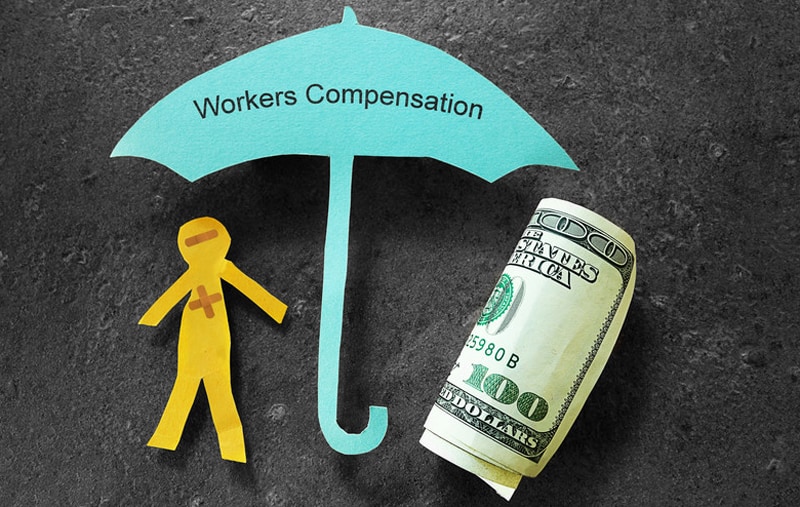Workers’ comp pays for illness/injury related to one’s job and attorneys handling these cases utilize the service of a medical review company for reviewing the medical documentation. Workers’ compensation could be an employer’s most expensive coverage, and it is important to understand that there are direct as well as indirect costs involved, and the latter may not be covered by insurance. For a large organization that has an Experience Modification (XMod) factor, every claim could affect the XMod factor and have a direct impact on the costs.
Direct costs: These include the medical costs and wage replacement payments, which the insurance company will pay to settle a claim. This amount factors into your XMod factor.
Indirect costs: These could prove to be higher than the direct costs, and include among other things,
- Wage costs associated with time lost through work stoppage due to the employee’s injury
- Wages paid to the injured worker for absences not covered by workers’ comp.
- Overtime costs
- Cost associated with hiring and training a substitute worker
- Time spent by supervisors, admins, and safety personnel among other who have to handle the claim
- Expenses involved in repairing/replacing the machinery and equipment that may have been damaged in the workplace accident.
- Third-party liability costs, OSHA fines, legal fees, costs related to worker’s pain and suffering
Among the various types of workers’ compensation claims, lost time claims are considered the most expensive and have the highest impact on the employer’s premium. These claims can be active for years and if they are not strictly managed, the cumulative costs will increase steadily.
What are the major reasons for high-dollar workers’ compensation claims?
These can be understood from the study done by Safety National, the largest provider of excess workers’ compensation coverage for self-insured employers in the United States, on their large workers’ comp claims. They define large workers’ compensation claims as those with a Safety National total incurred above one million dollars. This is over and above the underlying employer’s retention that ranges from $225,000 to $3 million.
Large claims include:
- Catastrophic claims: These are filed for brain injuries, severe burns, significant amputations, and spinal cord injuries. Though many employers feel that they do not face the risk for such claims, the reality is that they do. The seriousness and intensity of such claims are apparent at the time of the injury, and therefore gain immediate attention. Safety National’s claims data identifies 5 accident causes that accounted for 86% of their catastrophic injury claims.
- Motor vehicle accident (24%)
- Fall from an elevation (24%)
- Struck by machinery, a vehicle, or falling objects (20%)
- Act of crime (10%)
- Burns (8%)
- Variety of causes (severe food poisoning, dangerous bacteria infection, medical complications from surgical procedures and so on) (14%)
People experiencing catastrophic injuries have hope in the many medical advances that save lives and ensure a better quality of life for the injured. Since these advanced technologies are expensive, it also drives claim costs.
- Developmental claims: These are the more-routine claims that continue to develop over time to a point at which their total amount meets Safety National’s definition of “large claim.” This insurance company says that around 2/3rds of all their large claims started out as routine claims including those for shoulder, back, and knee injuries. Increase in costs in these claims are largely due to the following reasons.
- Multiple failed surgeries
- Prescription opioid medications
The risk is that these claims could remain open for 30 years or even longer. It is vital that risk exposure evaluations are properly done to reduce claim costs.
Managing Your Workers’ Compensation Exposure and Controlling Costs
- Have in place an effective and compliant injury/illness prevention program
- Provide appropriate safety training for supervisors
- Hold regular safety meetings and ensure they are effective
- Develop a good return-to-work program
- Ensure that you pay for claims that qualify as “First Aid”
- Ensure that your entire staff knows which occupational medical clinic to go to in case of a non-emergency accident.
- Be proactive in managing open claims to make sure that the treatment is proceeding as it should
- Have a clear idea of your XMod factor and how to manage it
- Have a post-injury response protocol and ensure that the appropriate people know the actions to take in response to an employee injury
- Conduct utilization management on each treatment request so that only the treatment for the allowed condition is authorized.
- Conduct drug utilization reviews to stop excessive opioid usage and prescriptions for unrelated conditions.
- Review bill utilization on every medical bill to confirm whether the medical services were appropriate, and that all invoices are correct and accurate.
- Make sure to choose the right broker.
Understanding the medical facts involved in the workers’ compensation claim and presenting them accurately and clearly to the attorney is a major responsibility of medical review companies that assist attorneys. Drug utilization review and the review of other medical treatment documentation reveal whether the expenses are for medically necessary services. The costs of workers’ compensation claims are significant and can have a huge impact on employers and insurers. So, it is important for employers to be extra cautious regarding the possibility of these claims and consult with their workers’ comp insurers to make sure they are well-armed against any eventuality.




